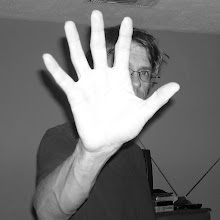Let's start with TV. Mad Men has returned for the third season. Set in the tumultuous year of 1963, this season has started slow. The various storylines (both new and old) have a deliberate pace and succeed at setting mood and tone as they slow ratchet the tension. At this rate it may be season's end before all this tension comes to a head. And speaking of tension, one can't really watch the new season without thinking about the world-shaking events that are soon to occur. The question is: When in the season arc will the Kennedy assassination happen? Will the writers wait for the end or place the tragedy in the middle of the story? Which is the best dramatic choice? Personally, I hope they deal with it sooner rather than later. Right now, watching Mad Men is like watching the first act of any Pearl Harbor story. We're just waiting for the bombs to fall.
I realize I've reduced the subtle and complex drama of Mad Men to rather simplistic terms. The show has never been a historical drama. It's a period piece and good one. The characters and setting are rich and the themes of identity and artifice are wholly integrated into the drama. But the atmosphere of the show has always had a fin de siecle quality. A way of life is ending. Big changes are coming. A modern audience can't help but think of 1963 in this way. I'm sure, then, that the writers will work hard to either make us forget the imminent changes about to befall the characters or satisfactorily make those changes part of the drama. Either way I'll be watching.
(One last note about Mad Men. The show has certainly made me less interested in HBO's True Blood, a series that has all the subtlety of a travelling circus. Compared to Mad Men, True Blood is nothing but melodrama and loud, horny characters. Let's face it: Where Mad Men is delicate, True Blood is gaudy; where Mad Men is nuanced, True Blood is coarse. What's more, True Blood has become increasingly superficial; there's just nothing to care about in the show. (Probably because it's not "about" anything.) I watch it now from a distance and with some impatience. Mad Men, however, fully involves me, emotionally and intellectually.)
Books: I recommend Palimpsest by Catherynne M. Valente -- a beautifully written fantasy about a magical city accessed through dreams. This one was wholly captivating. I also liked Positively Fifth Street by James McManus--an exciting, real world look at high stakes poker. Less interesting was World War Z by Max Brooks, The Magicians by Lev Grossman, and The Knife of Never Letting Go by Patrick Ness. All these books have gotten rave reviews and there is much to like in them. But World War Z lacked any narrative drive (you have to really be into zombie fiction to appreciate it); The Magicians featured a highly unlikeable protagonist who failed (in my opinion) to grow up by the end; and The Knife of Never Letting Go was aimed at a young audience and lacked any kind of subtlety (which is OK, really, but the first-person urgency of the narrative became wearing after a while).
Comics: I've read some great illustrated work over the past two months and I'm saving my reviews for a separate post. Look for it soon.
More on David Foster Wallace: We are approaching the first anniversary of Wallace's death. No doubt we'll be hearing more about Wallace's life and his last, unfinished novel (The Pale King) in the weeks to come. Wisconsin Public Radio has already put together a wonderful tribute which can be found here. Go give it a listen. I cannot recommend this program highly enough (the excerpt of Wallace's Kenyon commencement address alone is worth your time).
A few months ago I clumsily attempted to express what Wallace's loss meant to me. Recently, I found the perfect remembrance of Wallace by Sven Birkerts in Agni. I'm ending this post with his words. Where I stumbled, Birkerts dances:
"We are fortified by the work of our writers, by their specific books, but no less important is the sense we have, so long as they are alive, that they are with us, in our midst, engaged, taken up with seeing and thinking and processing--with writing. They make up an important part of the invisible but pervasive and perceptible sum-total that we recognize as our culture. When they die, we feel a terrible diminution, a suction of available energies withdrawn. As if suddenly we all have that much less purchase on reality. The air feels thinner and our gestures of thought feel heavier, more cumbersome, less part of a common purpose."








